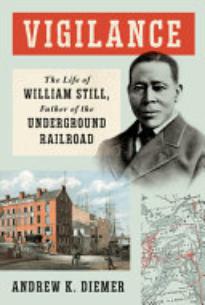2018 School Spending Survey Report
Vigilance: The Life of William Still, Father of the Underground Railroad
COPY ISBN
VERDICT Diemer rightly situates Still amid the center of the efforts against slavery and supplies an inviting narrative of the 19th-century fight between Black Americans and white supremacist oppression.
RELATED
ALREADY A SUBSCRIBER? LOG IN
We are currently offering this content for free. Sign up now to activate your personal profile, where you can save articles for future viewing




Comment Policy:
Comment should not be empty !!!